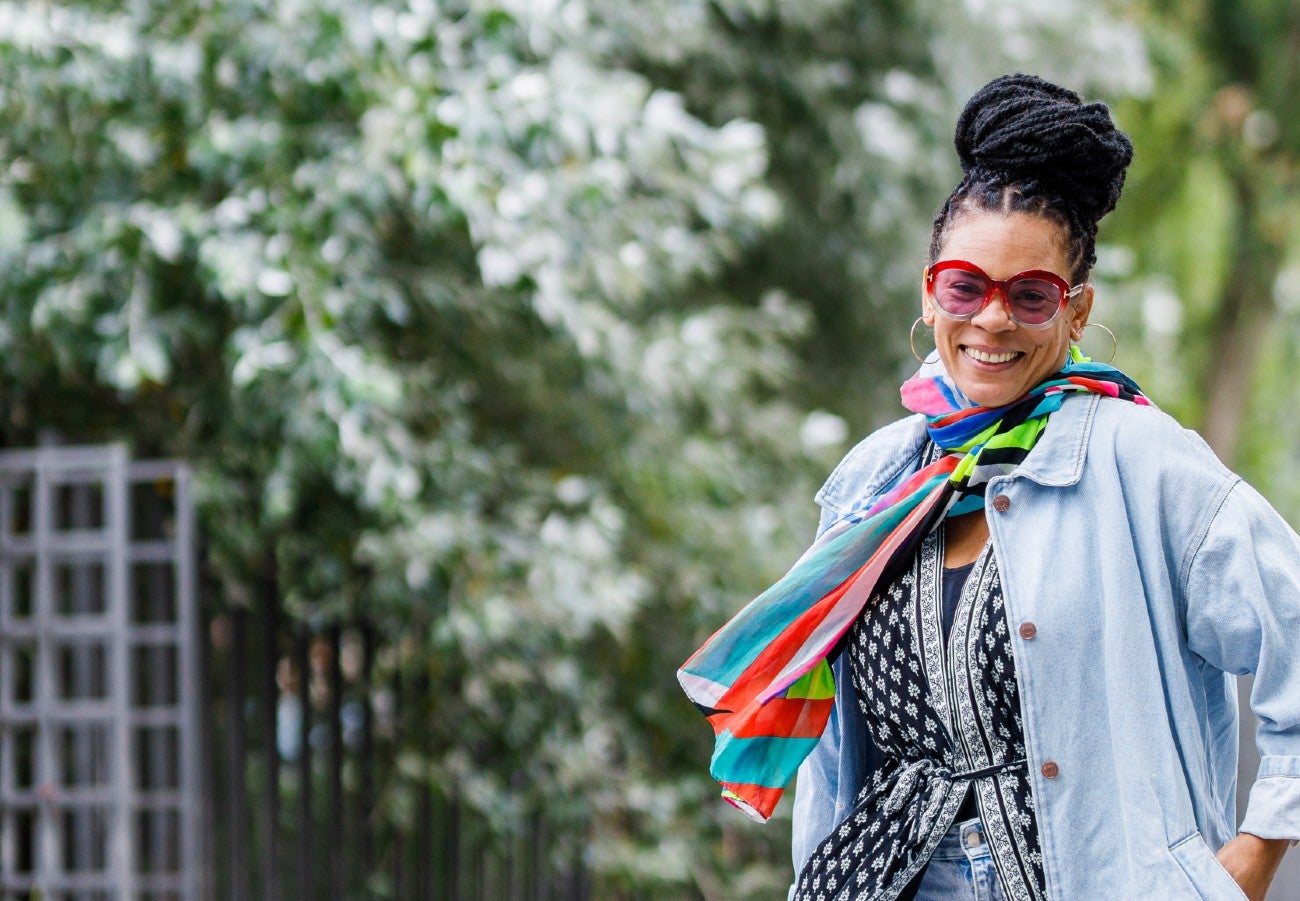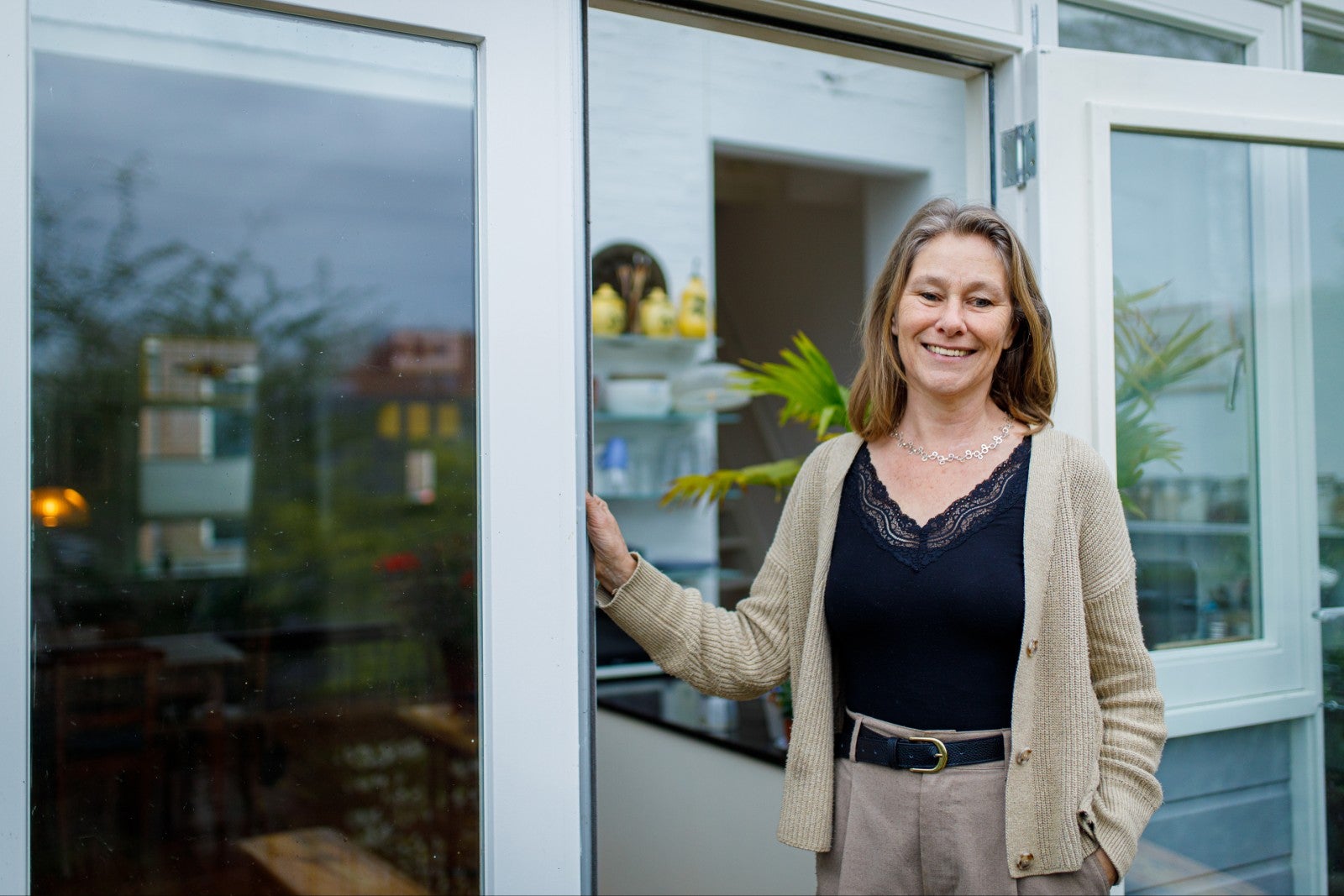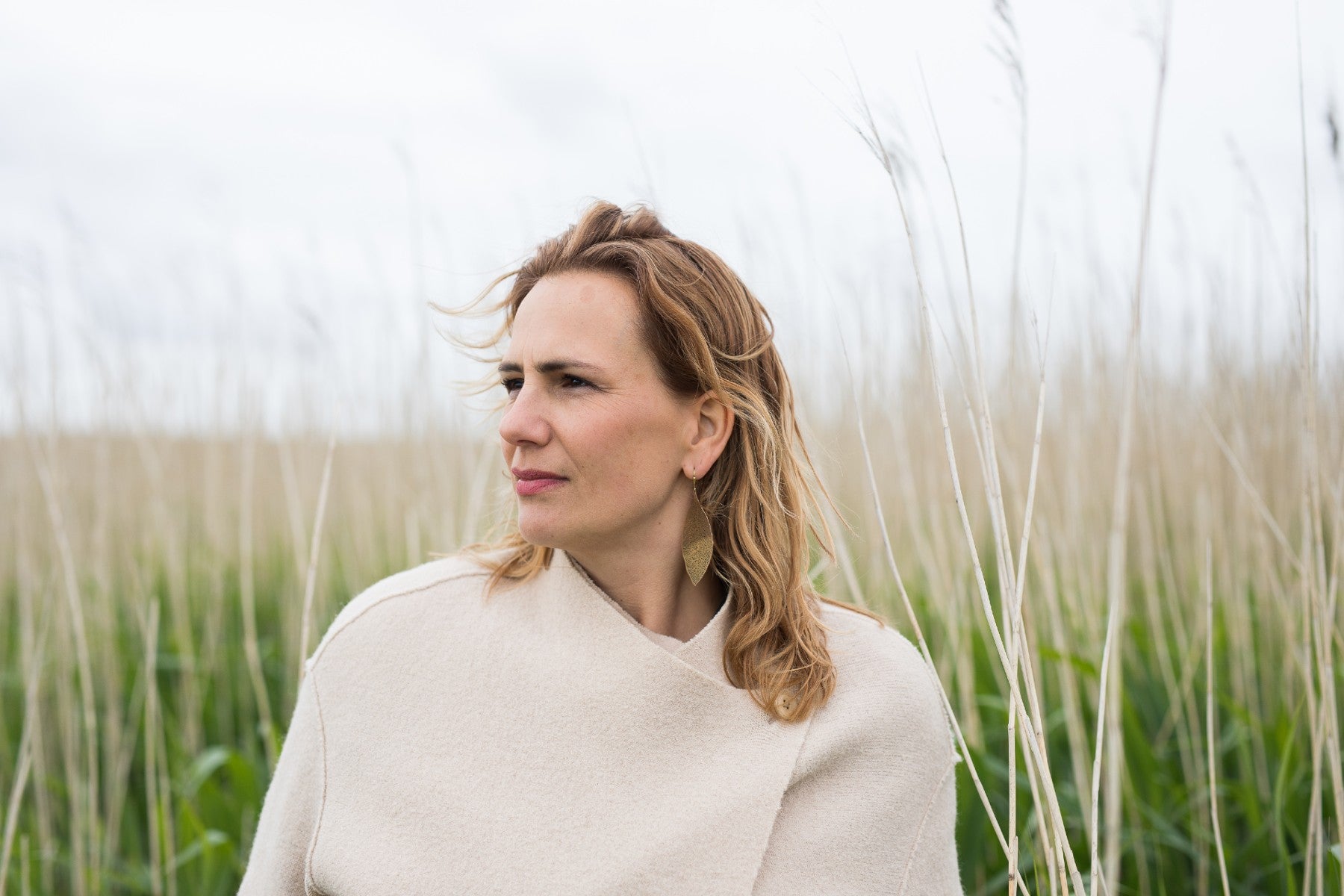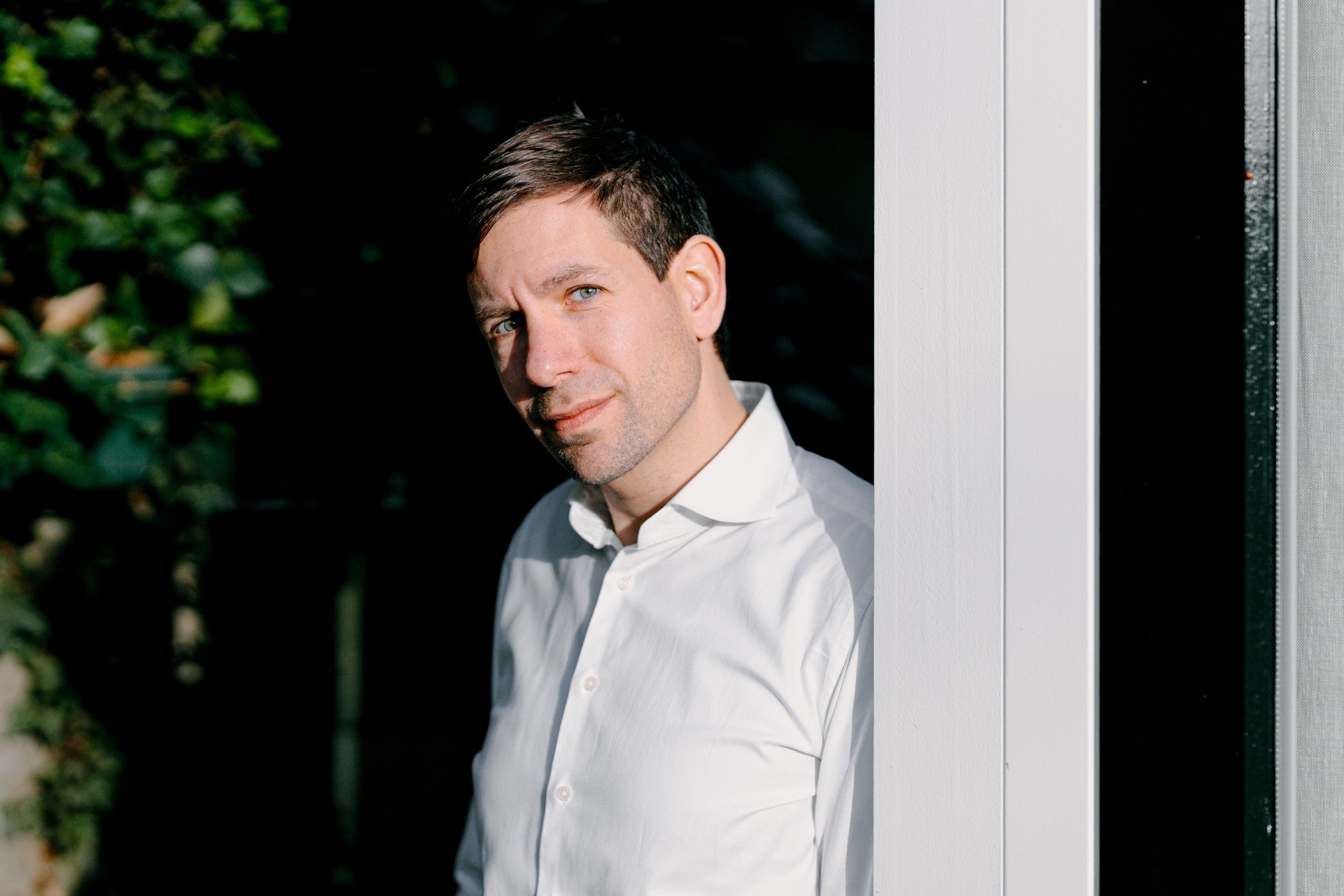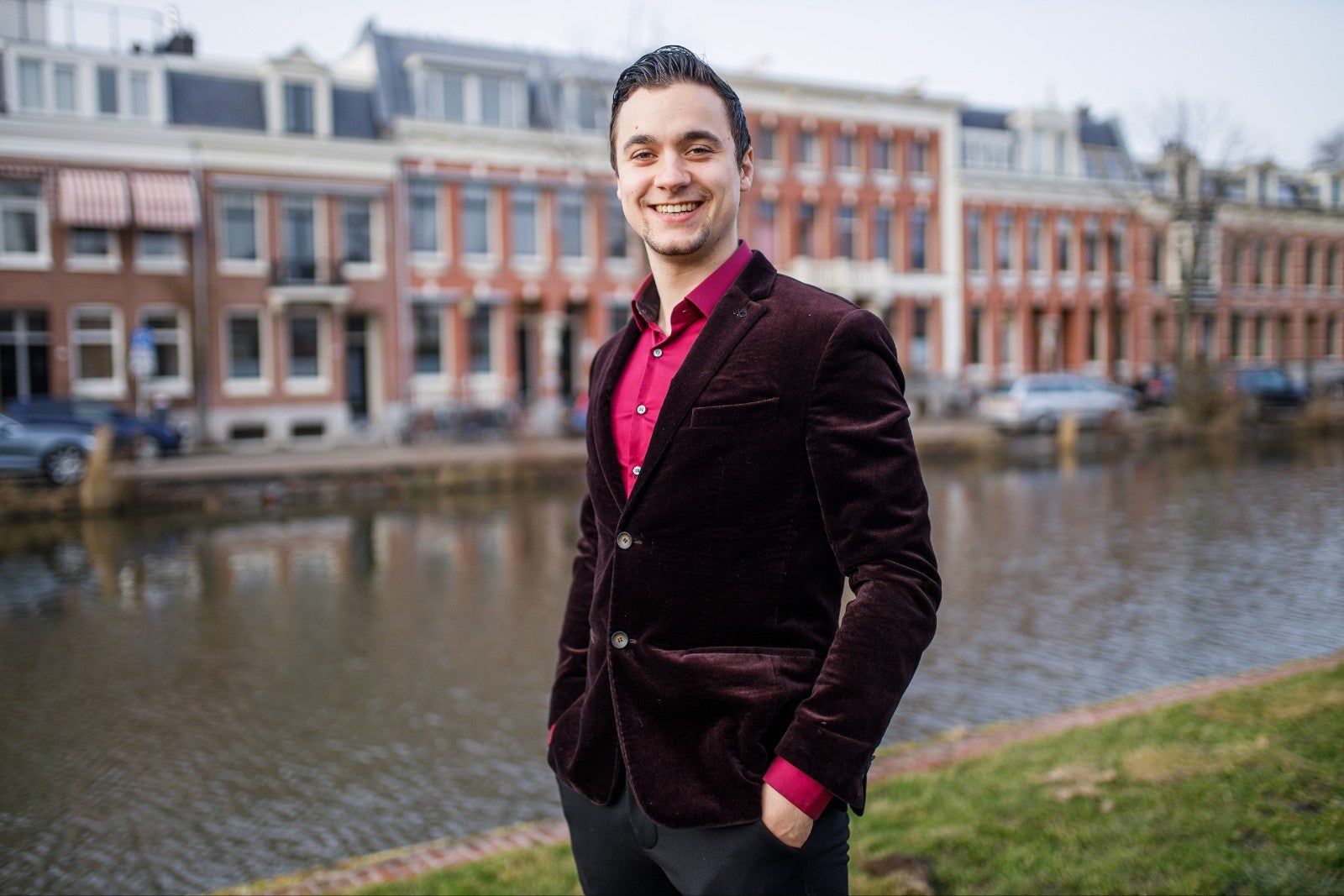Babs Gons (50) is regarded as the queen of the spoken word. She will be holding the position of Vrije Schrijver (Writer in Residence) at VU Amsterdam for the coming academic year.
What are your plans as Vrije Schrijver?
„In my lectures and tutorials, I will focus on language and how we use it. Our language is outdated and needs greater scope. Language is being subjected to more scrutiny, and the question arises: is it still satisfactory? For example, consider the titles and pronouns that we need these days to accommodate people who are less willing to be pigeonholed. I’ve also been raising awareness of spoken word for the past twenty years. I’m noticing that people don’t really know much about its origins, and I want to shine some light on that at least. Other than that, I’m keeping an open mind. I always bear in mind the saying ‘to teach is to learn twice’."
Why do you think there’s little attention paid to spoken word?
„It’s an art that’s sensitive to trends. Whenever there’s a competition, or a spoken word artist recites a poem during an important event, there’s always a journalist on the line asking what it is. My response is always to think: can’t we just pretend once and for all that it’s just a normal part of the landscape? I think it has to do with the participants, who are often people from other ethnic or bicultural backgrounds, and who haven’t received formal academic training in writing. Naturally, they have to make more noise in order to be seen."
What in your opinion makes spoken word of greater value than poetry books?
„Spoken word happens in the here and now. You’re speaking, and you’re giving something to the audience, and the audience gives energy back. Spoken word is a type of performance that involves rhythm, language, wordplay, cadence, timing, eye contact, direct address and delivery. It’s not rigid or closed; each performance is different. The audience plays a significant role. Since publishing my own collection of work, I’ve realised that for the first time I’ve no idea who my audience is. I love finding out that people outside of my own circle or target audience are relating to or gaining something from it."
What kind of student were you?
„I was a serious student. I did a lot of things all at the same time, and was really searching for what I wanted. And there was room for that in my programme on Latin American Language and Culture. I studied in Brazil and researched women of colour in social and political organisations. I thought it was a fantastic subject."
„I really had to push myself to complete my studies. I had no idea what was wrong with me – I kept falling asleep in lectures."
„However, if I could, I’d love to do my student days over again. Actually, I don’t remember much of that period at all, mainly because I became ill towards the end. I really had to push myself to complete my studies. I had no idea what was wrong with me – I kept falling asleep in lectures. It turned out I had chronic fatigue syndrome, and it cast a significant shadow over my student days."
Do you ever write about your illness?
„No, I don’t feel the need to do that, also because I believe I set a poor example. I’m incredibly busy, so it’s no wonder that I’m tired. People also see that I do all kinds of things, perform everywhere and look bright and sparkly in photos. What they don’t see, however, is that I’ll need to spend time resting on the couch again after this interview. It’s really hard sometimes, but I’ll still get up on stage at night. I’ve become the queen of brightening myself up."
Is it hard for you to talk about it?
„It’s more that I don’t like labelling myself that way. I don’t want to deny it, but I do try to work around it. It’s not all of me or who I am. I find it quite difficult to talk about myself in the first place, especially in interviews. I much prefer to be invisible outside of my work, but I also understand that people are curious and want to know more."
„I don’t like taking stances. Before you know it, you’re stuck with a certain image."
One of the themes you regularly address is pigeonholing. Does that also have to do with that anonymity?
„Absolutely. I’d much rather not make any firm statements about myself. I often feel that I contradict myself. As the poet Walt Whitman once said: Do I contradict myself? Very well, then I contradict myself. We’re such fluid beings; you shouldn’t want to pin yourself down with pronouncements. One day I might be a militant activist, and the next a poetry-writing girl. I don’t like taking stances. Before you know it, you’re stuck with a certain image."
„Even then, it’s still hard. I might see myself a certain way, but others will see me differently. People really want to figure each other out. You have to have a strong sense of yourself in order to resist being labelled and to withstand the judgements of others. The poem ‘Polyglot’ that I wrote for Book Week covers it all."
„It’s so easy to have a one-dimensional view of people. Take the baker, for example. He’s not only the baker. He’s also a caregiver, a loved one, and perhaps he enjoys cosplay on the weekend (dressing up as a fictional character, ed.). If I’ve learned anything, it’s that there’s so much more to people than meets the eye."
„And then there are animals – they’re really interesting. For example, my ginger tom cat September. He’s absent more often than not, and has been ‘catnapped’ several times. I regularly have to go and fetch him from the other side of town. He’s recently been fitted with a GPS, which led to the discovery that he has a second family. The rascal! At least he keeps me on my toes and stops me getting bogged down in ingrained expectations."

